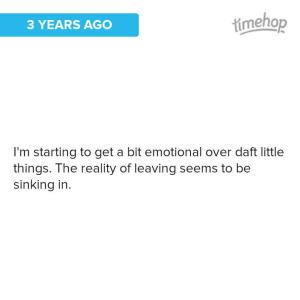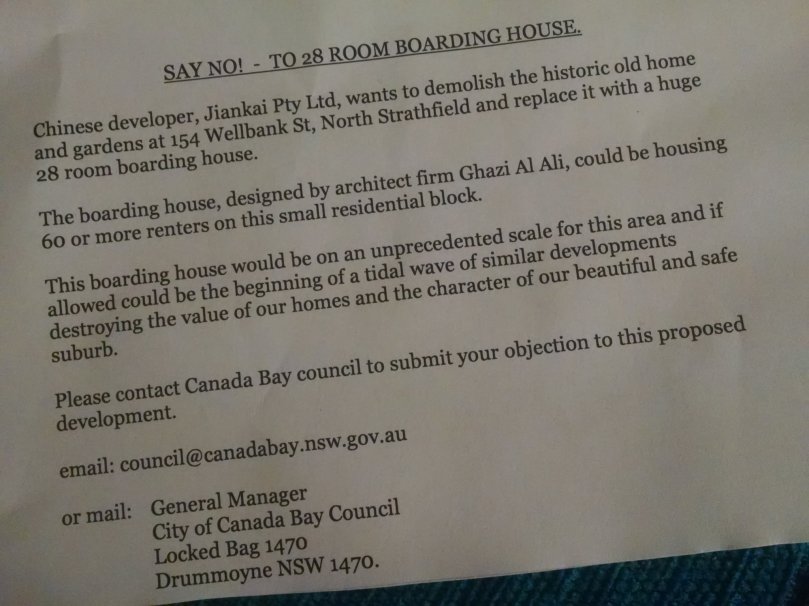originally posted on my tumblr in 2014
i’ll start by making it clear that i think opal is a wonderful system. i like oyster in london, i hate paper tickets, i value convenience and speed. opal is all of that, and i would encourage anyone who uses public transport who would benefit from opal to get an opal card.
opal deserves aggressive and targeted promotion. it needs to be supported by an excellent advertising campaign, and it needs clear demonstration that opal is better and cheaper than paper tickets – including weekly, fortnightly, quarterly and annual tickets.
however what new and potential users need is information. information that is free from promotional “push”. information that allows people to decide, based on facts and not emotion, whether opal is right for them, as well as information that gives people a clear understanding of how to use opal, and how to make the system work for them rather than the other way round.
all of that said, i think mostly the communication of opal to potential and new users has been wonderful. the website is easy to use, full of easy to find information which, for the most part, is just that: information. i received my opal card today, and it came with a “starter pack” – a couple of leaflets with information and instructions of how to use the system.
one of these was frequently asked questions. this was the one place where i didn’t want to see marketing or promotion. i just wanted simple questions answered, without anyone trying to convince me how awesome opal is. and for the most part, that is what i found. but in quite a few of the passages, there was a worrying fusion of information and promotion.
so… i edited it! i got a black ball-point pen, and sat down with a cup of coffee, crossing out all the bits that provided zero information and instead were a cleverly disguised attempt to convince me that opal is really good (again, i am already convinced). and here it is, page-by-page:

first off, the front page. not a major issue, but a bug-bear of mine. faq’s are rarely that: frequently “asked” questions. they are simply frequently anticipatedquestions, and in this case, they are the questions that the opal people want to answer. they are a set of really good questions, but i’m sure there are some more, shall we say “challenging, questions that are asked frequently.

they’re sneaky on this page, and they’ve started by hiding the advertising as phrases, nested in informative sentences. i know already that opal is easy, convenient, and fast. it’s on all the posters. it’s on the website. in the faq’s i just want to know what the system is and how it works. tell me how it works and i’ll decide whether it is easy and convenient
in the fifth paragraph, they also set up themselves against the opposition: paper tickets. while a comparison with paper tickets is, later on at least, necessary, it is included here simply to suggest that paper tickets are bad, and that opal solves all the problems of paper tickets. this paragraph creates a conflict – one which doesn’t actually exist – and that is the key to marketing: creating a battle and then winning it.
there’s also discussion of “full potential” here, which suggests power and supremacy. again, this isn’t information; it’s setting up opal as something brilliant. (which, i add, it is.)

here is a nice picture of someone putting their opal card into their pocket (rather than their wallet), that i think is supposed to show that an opal card is small and easily fits into your pocket. opal cards are actually bigger and heavier than paper tickets, but that’s by the bypass.
here again, though, we have the battle of opal vs paper tickets. why paper tickets are even mentioned as part of “how do i use my opal card” is something i can’t work out: step one – don’t buy a paper ticket. but seriously, this is again to set up the conflict of opal vs paper tickets, and to make you think about how you use a paper ticket.
there’s a nice bit about auto top up here as well (another feature i really really love), but the promotional push is here too, along with rhyming rhetoric*, set and forget, which is neither informative, nor something to be recommended.
the really good stuff: the jargon trip, journey, and transfer are explained in a really good way.

here’s an interesting phrase: for the first time. it’s so convincing they’ve used it twice. for the first time is a really powerful phrase: it introduces something and presents it as revolutionary, rather than just new. it’s here to tell you that the system of the past is crap. the first time is something that will change your life. do you remember the first time you rode a bike? the first time you had sex? the first time you drove a car? the first time you heard billie jean by michael jackson? the first time you met your husband? now how about the first time you travelled by bus and the fare was based on the straight line distance travelled. this is them presenting what is a technical and really quite boring change as something revolutionary. sure, it’s exciting if you plan bus routes and design fare systems, but for the general public it’s not first time worthy.
the really good stuff: although they don’t go into much detail here about how fares are calculated, they do highlight that there is a difference between opal and paper tickets, they introduce concepts like fare bands and they say the fare is based on distance rather than sections. a less informative piece would have just said that the fare is calculated automatically, without giving any detail at all about how it is.

i’ll be honest, this page pissed me off. the fist question (on the right hand page) attempts to regulate behaviour, rather than providing information. telling me how to report my stolen opal card, or what to do if that happens is a good idea. telling me how important it is that i follow your guidelines and act immediatelyis not. it’s patronising.
the next two questions, however, are the ones that annoyed me. for a start, they’re the wrong questions. people who use periodical and/or weekly tickets are interested in how using opal will affect what they are used to, and it is here that a fair and objective comparison is necessary. but that’s not what we get. the whole thing reads like advertising, and like an attempt to convince me that paper tickets are crap and i should switch to opal. the facts and information are all actually there, to be fair, but the way it is presented and the style used is very persuasive.
if you go on holidays…you don’t pay is a phrase that is technically true, but it offers no information – it’s included to tell you that if you continue to use periodical tickets, you will be wasting your money. in the other pamphlet that came with the starter pack there were some actual fare comparisons, which would have been good here.
i crossed out the whole section, including the questions. there are much better ways to provide a comparison between opal and periodical tickets that are objective and informative. i won’t offer suggestions.

here we’ve got the simple and convenient line again. as before, informative writing would just tell me how it works, and allow me to decide if it is simple and convenient.
finally, there is a question about travelling anonymously. i am majorly impressed that this was included. it flags opal as not being private. every journey you make is recorded against your actual real name. you are being tracked every time you use public transport. for many people this is not an issue. for some, who want to be able to look back and see what journeys they make, and how much it costs, it is a significant advantage. but for some people it is a feature that is not desirable. lots of people want to travel anonymously, and it is good that this pamphlet explains how to do so. i’ve said that this should be in big letters and at the front, but i don’t really mean it. i just wanted to highlight the fact that it is there, and that it is commendable that it is.
i’ll finish by saying again that i love opal. it’s in its infancy at the moment, and as the roll-out progresses it will get better and better. i’m sure, in time, there will be ways to load periodical tickets onto an opal card, and that there will be single-use and/or anonymous opal cards. but for now, it is a system that i like. i like the way it is being communicated to new and potential users. there is heaps of information on how it works and how to use it. this document, however, contains promotional “push” when i don’t think it should. i hope that in future editions of the frequently asked questions it is just information that is presented, and that promotion and persuasion are left for the ads.
* i apologize for my use of alliterative association here, but i couldn’t resist.
** i don’t apologize for using an apostrophe in faq’s. it’s meant to be there and it belongs there. but this isn’t a discussion on apostrophes.








